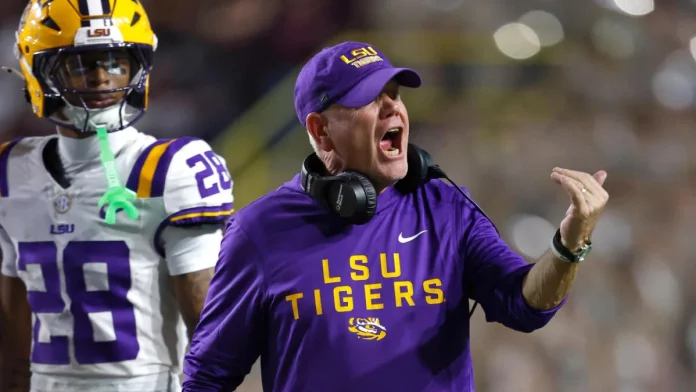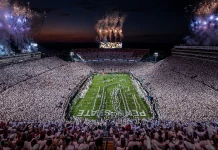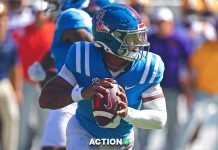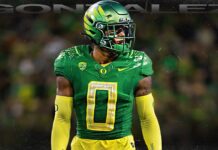By: Matthew Weatherby
Brian Kelly is out at LSU after what can only be described as a tumultuous stint in Baton Rouge. While most college football fans have already read countless takes and coaching hot boards, this firing represents something larger — a warning for athletic departments across the country. The Kelly saga reveals the structural flaws in how college programs chase success and how those decisions often backfire.
The Big Hire Trap
Every time a major program fires a head coach, the dream is to land the big hire. Florida fans know the feeling all too well. But how often does that gamble truly work?
Recent examples tell the story. Brian Kelly, Jimbo Fisher, and Lincoln Riley all fit that mold. Two are out of jobs, and one is still trying to fix a defense that has haunted him everywhere he has coached. For every Nick Saban or Urban Meyer, countless others never replicate their past success.
Looking at the current AP Top 10, only two — Mario Cristobal and Kalen DeBoer — qualify as major name hires. The rest, like Kirby Smart, Dan Lanning, and Lane Kiffin, rose from coordinator or mid-major positions. The lesson? Success rarely comes from chasing reputation alone.
Contracts and Buyouts: The Never Ending Payday
College football contracts have become absurd. Buyouts are massive, and contract lengths are unrealistic. The saying “the best job in sports is a fired Division I coach” has never been more true. These coaches are rewarded even in failure, cashing out millions because they understand the leverage game.
When Kelly left Notre Dame, he played it perfectly. If he won, he got the glory. If he lost, he got the payout. Schools continue to sign these deals under the illusion that they are paying for stability, but what they are really buying is risk.
Broken Hiring Committees
The system doesn’t just fail financially; it fails structurally. Athletic directors are supposed to lead these hires, but too often, politics and ego get in the way. Boosters, donors, and even politicians want a say.
Case in point: Louisiana Governor Jeff Landry recently joked that he would “let Donald Trump select LSU’s next coach before I let Athletic Director Scott Woodward do it.” That kind of interference highlights how disconnected decision makers are from the actual demands of running a football program.
When everyone wants control, no one is accountable, and programs like LSU pay the price.
Final Thoughts
Brian Kelly’s firing is more than a headline; it is a symptom of a larger sickness in college football. Until schools stop chasing big names and start fixing their hiring processes, these mistakes will keep repeating. Smaller buyouts and shorter contracts could help, but unless universities change who makes these decisions and how, the same story will play out again and again.







